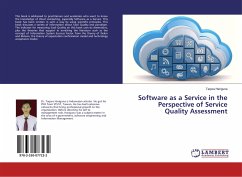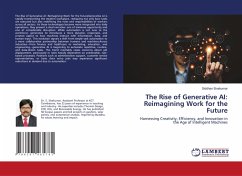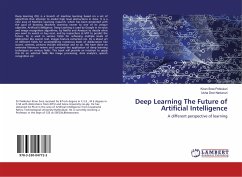
Global Village Services as the Future of Electronic Services
Streamlining the Global Village Services instead of E-Governments', E-Businesses', and E-Commerce' Services
Versandkostenfrei!
Versandfertig in 6-10 Tagen
39,99 €
inkl. MwSt.

PAYBACK Punkte
20 °P sammeln!
There is no a reference model, which could be used to develop and unify E-Commerce, E-Business, and E-Government services as the software artifacts. This book suggests a reference model that called Global Village Services Reference Model (GVSRM) to realize the Global Village Grid as an E-Services Framework.Thus, GVSRM could be referenced as the baseline of any kind of software engineering efforts pertaining to the E-Services, Globalization, and the Grid Computing concepts. Furthermore, some Grid-based entities, actors, actions, and their associations, which defined and elaborated in detail in ...
There is no a reference model, which could be used to develop and unify E-Commerce, E-Business, and E-Government services as the software artifacts. This book suggests a reference model that called Global Village Services Reference Model (GVSRM) to realize the Global Village Grid as an E-Services Framework.Thus, GVSRM could be referenced as the baseline of any kind of software engineering efforts pertaining to the E-Services, Globalization, and the Grid Computing concepts. Furthermore, some Grid-based entities, actors, actions, and their associations, which defined and elaborated in detail in GVSRM, would realize E-Government, E-Business, and E-Commerce systems. This book presents the AS-IS Models of Grid Computing, E-Commerce, E-Business, and E-Government software-intensive systems before presenting a TO-BE reference model (Global Village Services Reference Model) as a holistic and comprehensive, UML-based, XML-based, Grid-centric, X2Y-centric, Service-centric, and collaborative-centric consolidated reference model to realize pragmatically the Globalization as an E-Services framework in the cyberspace.












